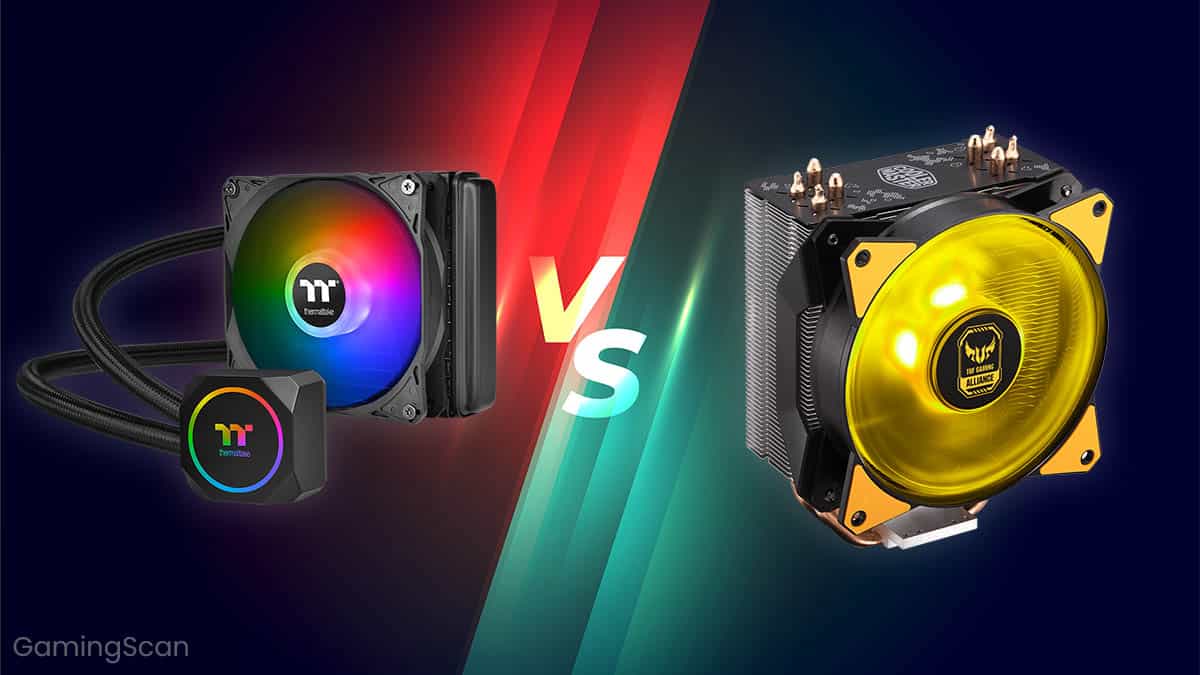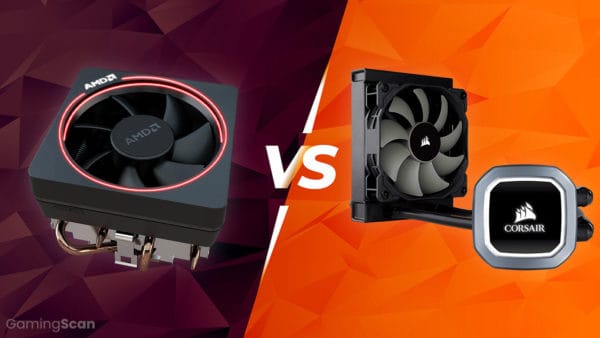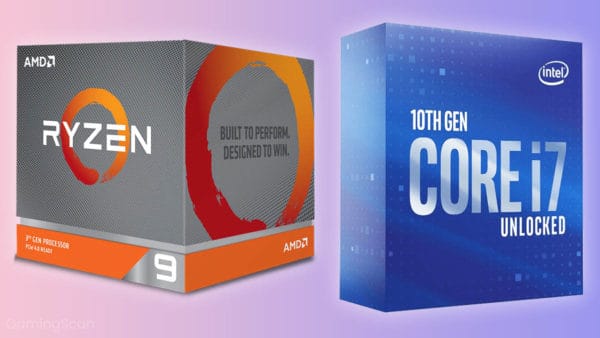Answer:
Only choose liquid cooling if you have a case with limited airflow or if you plan on doing heavy overclocking.
For all other purposes, air cooling is more than sufficient. It is convenient and much cheaper to boot.
Overclocking has become quite mainstream today, even if it is more popular with GPUs rather than CPUs. Still, liquid CPU cooling has become widespread. At some point, you have probably wondered if you should give liquid cooling a try.
But what are the differences between air cooling and liquid cooling? How do they function? And most importantly, which one should you choose? A liquid or an air CPU cooler?
We will answer these questions and more in this guide.
Table of ContentsShow
How Do They Work?
Air Cooling
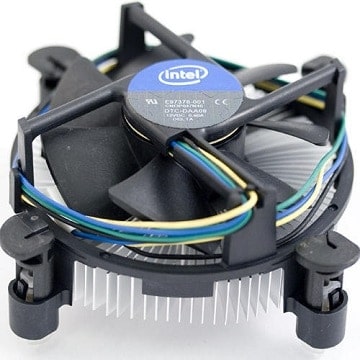
The way and air cooler functions is quite simple. It relies on two key components:
- The fan
- The heatsink
The heatsink is made of highly thermo-conductive materials, most commonly aluminum or a combination of aluminum and copper. Its purpose is to draw heat away from the CPU. Yet, there is only so much heat that a heatsink can absorb before the heat needs to be dissipated.
This is where the fan comes into play: by continuously spinning, it keeps cool air running through the heatsink, preventing it from overheating.
Liquid Cooling
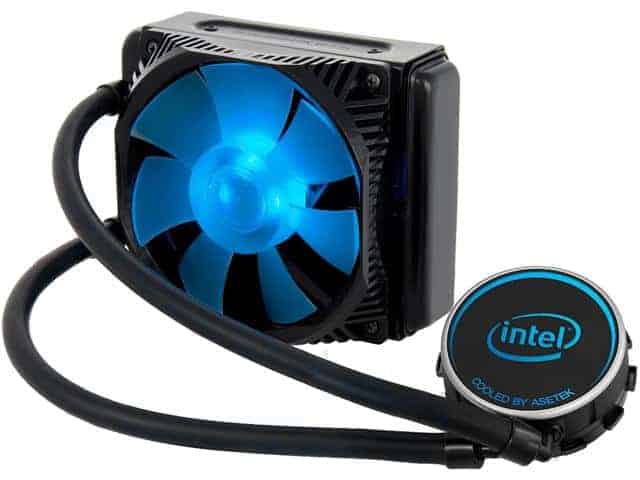
Liquid cooling is a tad more complex, involving more parts compared to an air cooling system. These are:
- The pump
- The radiator
- The hoses
- The fan
Whereas air cooling relies on air circulating through a heatsink, liquid cooling adopts a similar approach but uses fluid instead of air.
Water – or any other liquid coolant – is pumped through the hoses which connect to the component that needs cooling – in this case, the CPU. But merely recirculating it is not enough, and the liquid needs its heatsink.
That is precisely the role of the radiator in a liquid cooling setup. And to prevent it from overheating as well, we have a fan that keeps cool the air running over it.
Which One Should You Choose?
Let’s take a look at the essential factors that you need to consider before choosing between air and liquid cooling.
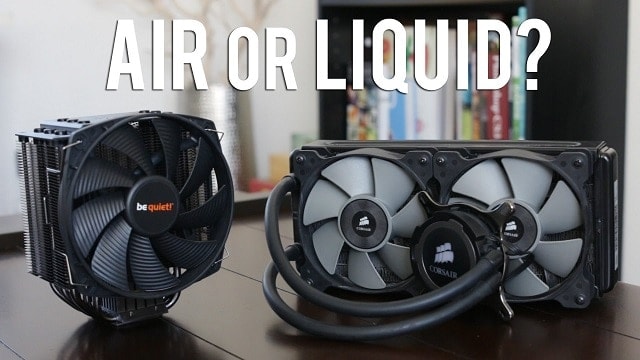
Cooling Efficiency
There is no doubt about it. Liquid cooling is far more efficient and powerful than air cooling, primarily because a much higher volume of liquid coolant can circulate more efficiently.
However, the more important thing to consider is whether you need that extra cooling power. For a CPU running at factory clock speeds, air cooling will be more than sufficient. Even if you plan on some light overclocking, liquid cooling is still unnecessary unless the CPU is pushed to the limit.
Price
Whereas liquid cooling is undeniably more efficient, air cooling has the advantage of being far more affordable. This is mainly due to the lower manufacturing costs, and the price differences can be measured in hundreds of dollars.
Convenience
Unless you have experience dealing with computer hardware, you will find installing and maintaining a liquid cooling setup nearly impossible.
On the other hand, an air cooler is easy and convenient – you put it in place, take it out once in a while to blow the dust out, and it is as good as new.
Conclusion

There are two scenarios where we recommend using liquid cooling:
- Extreme overclocking
- Cramped computer cases
When pushing a high-end CPU to its limit, even the best air cooler will be overexerted. And when air is no longer physically capable of keeping a CPU cool, water is the way to go.
And even if you aren’t planning on pushing that limit, and you simply don’t like the noise of a fan constantly spinning, liquid cooling is a much quieter option.
Additionally, you might wish to fit a gaming configuration inside a Mini ITX or a Micro ATX case, which would not allow the ideal airflow. Liquid cooling would be a perfect match in this case, since it doesn’t need nearly as much air to keep the CPU temperature low.
